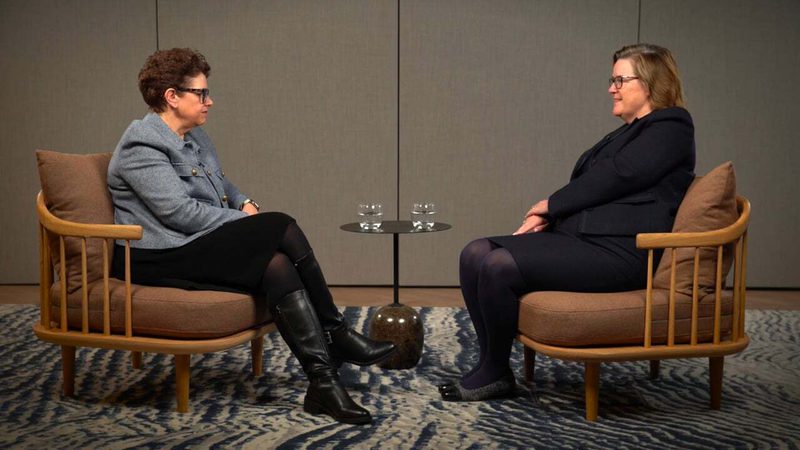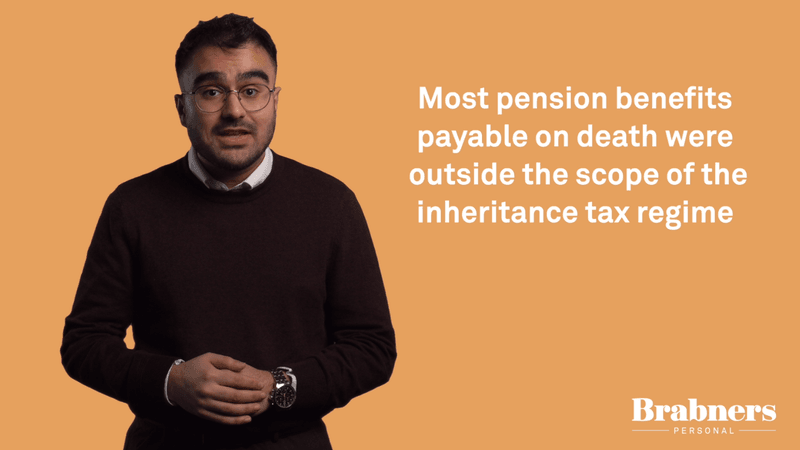4 key drivers making contentious probate expertise essential in 2026

We take a closer look at the social, demographic and economic trends that are making contentious probate expertise essential in 2026.
Read more
We make the difference. Talk to us: 0333 004 4488 | hello@brabners.com
Award-winning solicitors with expertise in Wills, trusts, probate, succession and estate planning for business owners, families and high-net-worth individuals.
When it comes to your personal affairs, it’s important to take clear, precise and practical legal advice. Our advisors are experienced in breaking down and explaining complex legal situations in clear terms, empowering you to make informed and strategic decisions about your life, estate and future.
We’re trusted to provide tailored support to a vast range of individuals, families, business owners and trustees — including those of high-net-worth — as well as charities on all manner of private client matters including contentious probate, trusts, family issues, residential conveyancing, wealth management, succession planning and tax and estate planning.
Whatever your needs, assets or personal situation, our experts will listen to you and provide friendly, pragmatic advice. While we have offices in Liverpool, Manchester, London, Leeds and Lancashire, we can work with you wherever you’re located.
Our private client team forms part of our extensive Brabners Personal offering, which brings together the very best in personal legal guidance to help you plan and protect your future.
Talk to us by giving us a call on 0333 004 4488, sending us an email at privateclient@brabners.com or completing our contact form.

Our award-winning private client team has deep experience across all areas, including:
Our aim is to take the most complex legal matters and provide simple, sound and strategic advice to help you safeguard and protect what matters to you and your family.
We’ve also answered some of your most frequently asked questions about inheritance tax, gifting and the Residence Nil Rate Band.
“Praised as a ‘fantastic professional group of people, from top to bottom’, the private client team at Brabners remains a popular choice for ultra-high-net-worth individuals for complex estate planning issues, tax planning, Will drafting and probate administration.”
The Legal 500 2026
“Brabners is an outstanding firm. The way in which you manage our family’s affairs gives us genuine confidence and peace of mind — we quite literally sleep easier at night knowing that matters are in your hands.”
Brabners Personal client

Acknowledged as a ‘Top Tier’ firm for personal tax, trusts and probate in The Legal 500 as well as a ‘Band 1’ firm for private wealth law in Chambers and Partners, our private client team is one of the best regarded in the UK.
It’s led by experienced Partner Duncan Bailey. Featured as a ‘Top Recommended Probate and Wills Lawyer’ in the 2025 Spear's Magazine Tax & Trusts Index (which ranks the best probate and Wills lawyers for high-net-worth individuals), Duncan is an expert in estate planning. He provides trust and tax advice in conjunction with drafting tax-efficient wills and backing these up with Lasting Powers of Attorney.
Duncan also deals with trust creation and administration, probate administration and Court of Protection work. He’s a member of the Society of Trust and Estate Practitioners (STEP), holding an advanced certificate in trust disputes.
Further expertise is provided by the versatile Louise Scholes, who specialises in working with elderly clients and those lacking mental capacity, acting as Professional Deputy for a number of clients and advising lay deputies. She’s also a full member of STEP and previously acted as Chair for its Liverpool branch for many years.
The highly technical Steven Appleton advises on all aspects of private client law with a focus on advising business owners on estate planning matters, including developing succession plans and managing inheritances fairly. Steven specialises in advising those concerned with the responsible stewardship of wealth and philanthropic tendencies — he’s often appointed to act as the independent administrator of complex estates where existing executors or administrators are unable to work together.
Sarah Murphy has a strong background in non-contentious work and seeks to promote and develop solicitors working in this field as the Chair of the Law Society’s Private Client Section Advisory Committee. She’s also a full professional accredited member of the Association of Lifetime Lawyers, serving Lancashire and Cumbria.
Amanda Bailey handles a range of succession and tax planning matters such as the preparation of Wills, the creation and administration of Trusts and the establishment of Family Investment Companies.









“With a background in contentious and non-contentious trust work, [Duncan Bailey] is well-versed in all aspects of estate planning, particularly for clients with high-value, complex assets. This includes the drafting of Wills, advising on powers of attorney, trust creation and probate administration.”
Spear's Magazine, Top Rated Probate & Wills Lawyers 2025

We offer a full suite of tax and estate planning services, which includes our fixed-fee Estate Review offering.
Estate Review is designed to provide a comprehensive review of your estate planning. After all, it’s important to know that yours is up to date and takes into account both recent and ongoing tax and legal changes. This ensures that your loved ones will be taken care of in the most appropriate, strategic and efficient way.
Everyone’s personal circumstances are different. There’s a need to consider inter-generational matters, your own personal circumstances, complicated family dynamics, property interests and business interests. Alongside the complexities around tax planning, it’s easy to see why estate planning can feel daunting and overwhelming.
That’s why we developed Estate Review. With tailored and practical guidance from our experts, you’ll be well equipped to make the right decisions to protect your estate for the future.
Pulling all these issues and solutions together in one easy-to-read document will give you the reassurance and peace of mind you need to move forward with confidence. It'll also help you to plan for the efficient administration of your estate by your executors when you’re no longer around.

“Brabners has a highly skilled team of individual partners and staff, capable of handling the most complex trust and private client situations.”
Client feedback, Chambers and Partners 2026
“Brabners have been forward-thinking in their approach and negated a huge amount of stress for the business and family.”
Client feedback, Chambers and Partners 2026
“Brabners has very good quality people with a good service ethos.”
Client feedback, Chambers and Partners 2026
“Brabners' level of professionalism is outstanding.”
Client feedback, Chambers and Partners 2026
“Brabners handles the full range of personal tax, trusts and probate-related work... 'Exceptional head of department' Duncan Bailey is particularly knowledgeable in trusts and tax planning for families, entrepreneurs and business owners and also advises professional trustees.”
The Legal 500 2025
“Louise Scholes has a broad practice with expertise in Wills, inheritance tax planning, estate administration and trusts.”
The Legal 500 2025
“Amanda Bailey is a ‘go-to person for all complex trust issues' [with] unique expertise in family investment companies.”
The Legal 500 2025
“Sarah Murphy is a very safe pair of hands for complex estates.”
The Legal 500 2025
“Steven Appleton's expertise in personal estate planning is 'second-to-none'.”
The Legal 500 2025



We take a closer look at the social, demographic and economic trends that are making contentious probate expertise essential in 2026.
Read more

We explore the key inheritance tax updates to Agricultural and Business Relief announced in and after the Autumn Budget 2024.
Read more

We explore how the courts approach trusts on divorce and outline the key considerations for dealing with them after separation.
Read more

Our independence allows us to be objective, principled and provide a service with heart and personality.
We’re on a mission to make the difference for our clients, people and communities. Proudly anchored in the North since 1815, we serve all of England and Wales.

Northern Ambition
The collaborative network for purpose-led businesses. We’re building a more sustainable and innovative tomorrow.

Sustainable Business
In 2022, we proudly became the UK’s largest law firm (and the first outside London) to become B Corp certified.

Community Impact
We channel the energy of our public-spirited people and clients towards improving our local communities.
Loading form...